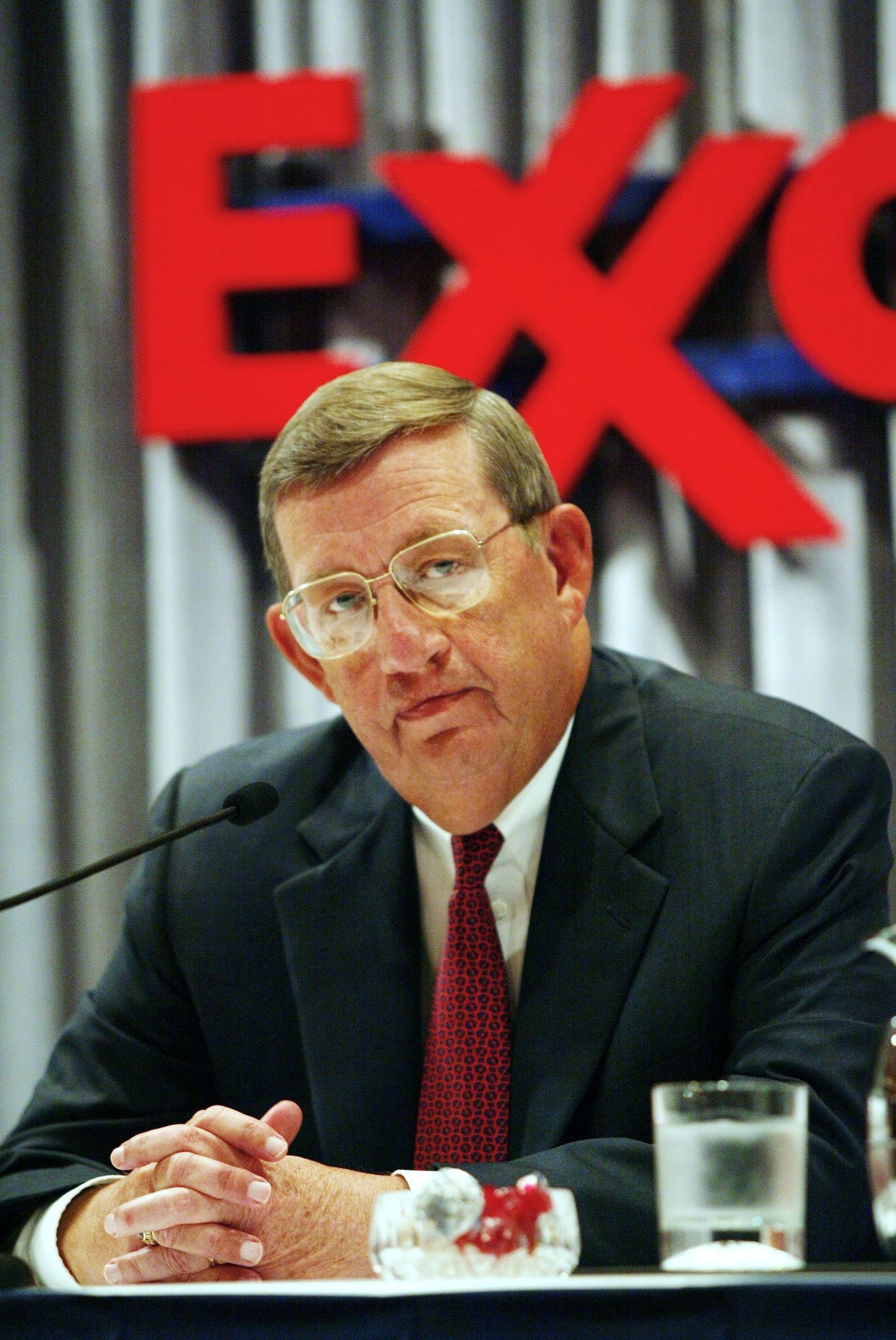Celebrating a Climate Victory: “Big Oil No Longer Quite as Big”

Symbolic of all this is the removal of the former ExxonMobil C.E.O. Lee Raymond as the lead independent director on the board of JPMorgan Chase, the world’s largest lender to the fossil fuels empire.
As climate activist Bill McKibben notes:
Raymond’s removal ratifies the notion that, after a decade of relentless campaigning by activists, Big Oil is no longer quite as big. It’s true that, in the same week, much of the industry got the bailout that it had been asking for from Washington. But that was scant cause for celebration: the International Energy Agency released new numbers, predicting that global oil demand would drop nine per cent this year. As economists at the Institute for Energy Economics and Financial Analysis pointed out, the fossil-fuel sector really faces long-term solvency problems, not just short-term liquidity woes. Demand growth had been slowing in recent years, as regulatory pressure began to mount, as a result of all that activism, and as renewable energy got cheaper. Even before covid-19 really bit, Exxon had been “humbled,” according to Bloomberg Businessweek, becoming a “mediocre” company. Now it seems entirely likely that we have seen peak oil demand, a moment that the oil companies had predicted wouldn’t come for decades. Here’s the energy analyst Kingsmill Bond’s precis: “If demand for fossil fuels bounces back in 2021 by half the amount it fell in 2020, and grows at 0.5% a year, it would take 8 years to get back to where the industry started. And in the meantime, the renewable energy revolution has not stopped.”
The choice to remove Raymond may be connected to his record as a climate-denier. Again, per McKibben, “(Raymond) gave the single most audacious speech of the (late 20th Century) telling a World Petroleum Congress audience in 1997, on the eve of the Kyoto climate talks, that the planet was cooling, and that it made no difference if we acted then or waited a quarter century.”
